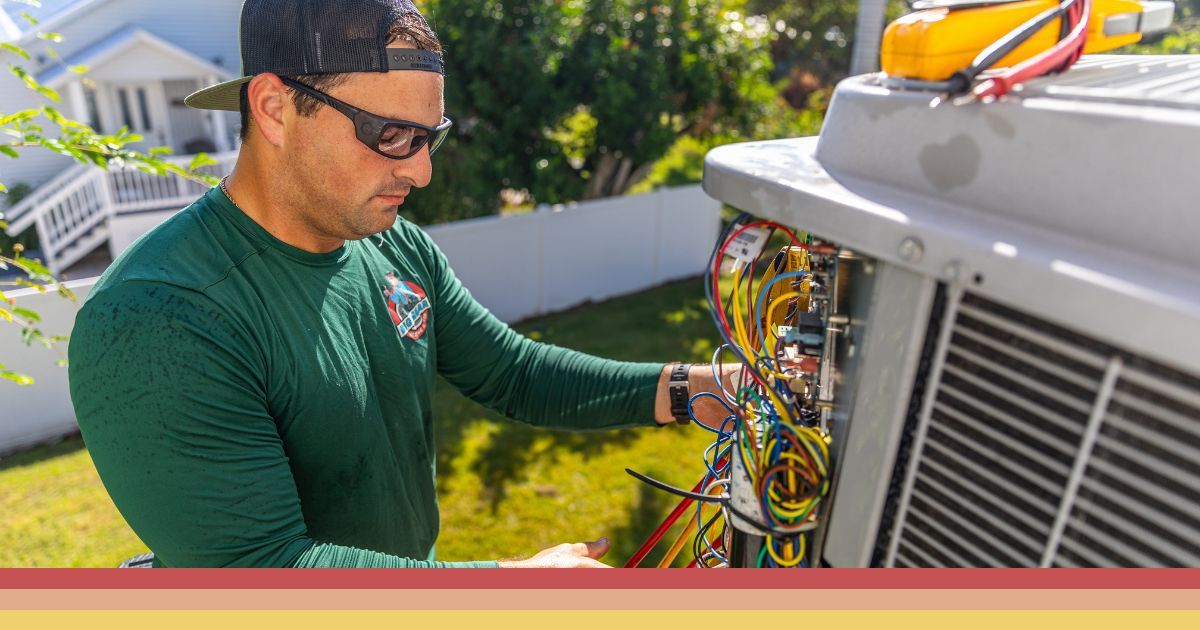Air conditioners are an essential part of keeping your home comfortable, especially during the summer months. When your AC unit breaks down unexpectedly, it can be stressful and frustrating emergency air conditioner repair. That’s why understanding emergency air conditioner repair is vital. Whether you are facing a sudden breakdown or are just trying to be proactive, this guide will walk you through everything you need to know.
Why You Might Need Emergency AC Repair
Air conditioning units can stop working for various reasons, ranging from simple issues like a dirty filter to more complex problems with the compressor or electrical system. Some common causes of an emergency AC failure include:
- Dirty or clogged filters: Over time, dust and debris can accumulate and block airflow, causing your AC to overheat or underperform.
- Refrigerant leaks: A refrigerant leak can lead to poor cooling performance and may cause further damage if not fixed promptly.
- Frozen coils: When the evaporator coils freeze, it restricts airflow and leads to an inefficient cooling system.
- Electrical issues: Faulty wiring, circuit breakers, or a malfunctioning thermostat can prevent your air conditioner from running properly.
While regular maintenance can reduce the likelihood of an emergency, some issues may still occur without warning.
Signs You Need Emergency AC Repair
Knowing when to call a professional can save you from costly damage and unnecessary discomfort. Here are a few signs that you need emergency air conditioner repair:
- No Cool Air: If your AC is blowing warm or room-temperature air, it’s time to call for emergency repair. This could indicate a refrigerant leak or compressor failure.
- Strange Noises: Unusual noises such as grinding, banging, or screeching often signal mechanical issues within the unit.
- Water Leaks: Water pooling around your AC unit is a sign that the system’s drainage may be clogged or there is a refrigerant leak.
- AC Won’t Turn On: If your AC refuses to start, it could be a result of electrical issues or a problem with the thermostat.
- Foul Odors: Musty, burning, or other unusual odors coming from your AC can signal mold buildup or electrical malfunctions, both of which require immediate attention.
Steps to Take Before Calling for Emergency AC Repair
While it’s best to rely on a professional technician for emergency AC repair, there are a few steps you can take to troubleshoot the problem before they arrive:
- Check the Thermostat Settings: Ensure that your thermostat is set to the cooling mode and the temperature is set correctly.
- Inspect the Circuit Breaker: Sometimes, the issue is simply a tripped circuit breaker. Check the electrical panel to make sure the breaker is in the “on” position.
- Change the Filter: If the air filter is clogged, it could lead to airflow problems. Replacing the filter may help restore cooling performance.
- Clear Debris Around the Unit: Ensure that the area around your AC unit is free from dirt, leaves, or other debris that could block airflow.
These steps can help diagnose simple problems, but when in doubt, always contact a professional for help.
What to Expect During an Emergency AC Repair
When you call an emergency AC repair service, a technician will typically follow these steps to diagnose and fix the problem:
- Initial Inspection: The technician will examine the unit, checking for any visible signs of wear and tear, leaks, or malfunctioning components.
- Diagnostic Test: The technician may run a diagnostic test to evaluate the performance of the system, checking for issues like refrigerant levels or electrical problems.
- Repairs: After diagnosing the issue, the technician will perform the necessary repairs, whether it’s replacing a faulty component or fixing a refrigerant leak.
- Post-Repair Test: After repairs are complete, the technician will run the system to ensure that everything is functioning correctly.
Depending on the issue, repairs may be completed on the spot, or the technician may need to order replacement parts and schedule a follow-up visit.
How to Choose the Right Emergency AC Repair Service
When you need emergency AC repair, time is of the essence. Here’s what to look for when choosing a service:
- 24/7 Availability: Look for a company that offers round-the-clock emergency services to ensure help is always available when you need it.
- Expert Technicians: Choose a company with certified technicians who are experienced in diagnosing and repairing all types of air conditioners.
- Reputation: Check reviews, testimonials, and ratings to ensure the company has a proven track record of reliable service.
- Affordable Pricing: Ask for a clear pricing structure upfront. Some companies may charge extra for emergency or after-hours service, so make sure you understand the cost.
- Warranty: Look for a company that offers warranties on their repairs to give you peace of mind.
At Tropic Air, we specialize in 24/7 emergency air conditioning repair services, ensuring that you don’t have to endure the heat. Our skilled technicians are always ready to tackle any AC emergency.
Preventive Maintenance to Avoid Future Emergencies
While emergency repairs are sometimes unavoidable, regular maintenance can significantly reduce the risk of an unexpected breakdown. Here are a few tips for keeping your air conditioner in top shape:
- Change filters regularly: Dirty filters can strain the system and reduce efficiency, leading to breakdowns.
- Schedule annual tune-ups: Professional inspections and cleaning can help detect problems early and extend the lifespan of your unit.
- Inspect ductwork: Leaky ducts can cause your system to work harder, leading to wear and tear.
- Clean the coils: Both the evaporator and condenser coils need to be cleaned regularly to maintain proper airflow and cooling efficiency.
By keeping up with routine maintenance, you can ensure that your air conditioner runs smoothly year-round.
Conclusion
Knowing how to respond during an emergency air conditioner failure can save you time, money, and stress. By understanding the signs of trouble, taking quick action, and choosing the right repair service, you can get your AC back up and running in no time. Remember that regular maintenance is key to preventing major issues down the line. For 24/7 emergency AC repairs, trust Tropic Air to provide reliable and prompt service, keeping your home cool and comfortable no matter the season.
For more information or to schedule a service, visit our website: Tropic Air 24/7 Emergency AC Repair.

